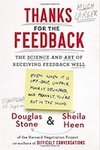Sample Leading Flashcards
A sample of flashcards from our leading presentations.
Socrates - Head of School

We empower educators to reimagine teacher development and school leadership by providing distilled resources and delivering customized professional development programs. We use the lens of questioning to challenge educators and stimulate critical thinking.
What is the difference between a Vision and a Mission?

The Vision is the public statement of intent - Why the company exists. The Mission is a description of the route - How to get there.
What are the three different types of feedback?

Appreciation, Coaching, and Evaluation.
What are the three types of digital relationships we have with children and technology?

Limiters, Mentors, and Enablers.
In terms of retaining talent, what are the two types of costly turnover?

Psychological turnover and Regrettable turnover.
What are the key guidelines for email?

- Use as few words as possible
- Central point easy to see
- Don’t send anything that will spark a negative emotional reaction
- Apologize if you break rule #3
What are the three main reasons why giving advice fails?

- The chances of having a relevant idea is slim
- People tend to act on their OWN ideas
- The dilemma people relay is not often the real issue so we propose solutions to the wrong problem
What is risk homeostasis?

When people compensate for risks in one area of their lives with a lack of risk in another.
What does it mean when someone fills a structural holes?

When people use their talents and abilities to fill in gaps in an organization that don’t necessarily fall within their specific line of work.
What is the impact of “rumbling with vulnerability”?

It builds trust over time when we make ourselves vulnerable in professional conversations.
What is CEO disease?

The idea that fixed mindset leaders need to constantly be put on a pedestal or seen as perfect.
What happens to givers over time in an organization?

Givers consistently end up at the top and bottom of the success continuum- they either thrive or get taken advantage of professionally.
What needs to be aligned with organizational change?

In times of change, performance evaluation, compensation, promotion and recruiting and hiring systems all have to align with the change.
What are some alternatives to traditional grading practices?

- Most recent performance
- Most comprehensive performance
- Most relevant to course goals
Most engineers use what level of math?

The vast majority of engineers use only eighth-grade mathematics.
Parkinson’s Law

The time it takes to do a job will expand and contract with the amount of time given.
What is scope creep?

When the primary focus of a group or action gets derailed by side priorities (usually in a meeting or project).
What is System 1 vs. System 2 Thinking?

System 1 thinking is quick and automatic- think limbic system/emotions. System 2 thinking is slow, effortful and deliberate.
How does the 10/10/10 decision-making model work?

Think about the decision with three different time frames: How will we feel about it 10 minutes from now? How about 10 months from now? How about 10 years from now?”
What is spotlight shifting?

Making sure to highlight variables not as evident or not currently right in front of us.
What is commitment drift?

The systematic breakdown in fulfilling an organization’s most important commitments due to perceived short-term gains that end up compromising the stated promise.
What is the power paradox?

The idea that the very skills needed to gain power: empathy, self-awareness, transparency and gratitude, are the same skills you lose while you spend time in those positions of power.
What is downstream flexibility?

A decision that leaves open the possibility for more decisions to be made in the future or for multiple outcomes to play out.
What is meant by the phrase excellent sheep?

Children who can follow the rules/play the game of school/life flawlessly, but struggle when asked about passion or forced to think on their own.
What is the curse of experience?

When we allow memories of the past to inhibit our ability to move forward or adapt to the future.
What is intellectual hang time?

The systematic avoidance of rushing to closure so fresh perspectives and approaches to problems can be explored.


